December 5, 2024: Grand Round Lecture in Brain-Mind Medicine - Mechanisms of Cognition and Therapeutic Insights (Northern)
Mechanisms of Cognition and Therapeutic Insights
Description: Today I will share our efforts identifying mechanisms to rejuvenate hippocampal circuitry with new adult-born neurons, reverse neuroinflammation, re-engineer connectivity of hippocampal inhibitory microcircuit, and restore inhibitory circuit plasticity to reverse cognitive impairments in aging, AD, and in models of neurodevelopmental disorder risk genes.
Target Audience
This program is intended for Psychiatrists, Psychologists, General and Family Practice Physicians, Psychiatric Nurses, Physician Assistants, Nurse Practitioners, and Social Workers.
Learning Objectives
Upon completion of the activity, participants will be able to:
- Critique brain mechanisms of plasticity.
- Identify how brain mechanisms of plasticity can be harnessed for improving cognition.
- Discuss the potential for basic neuroscience to bridge the gaps between genetics and therapeutics.
SPEAKER(S)
Amar Sahay, PhD
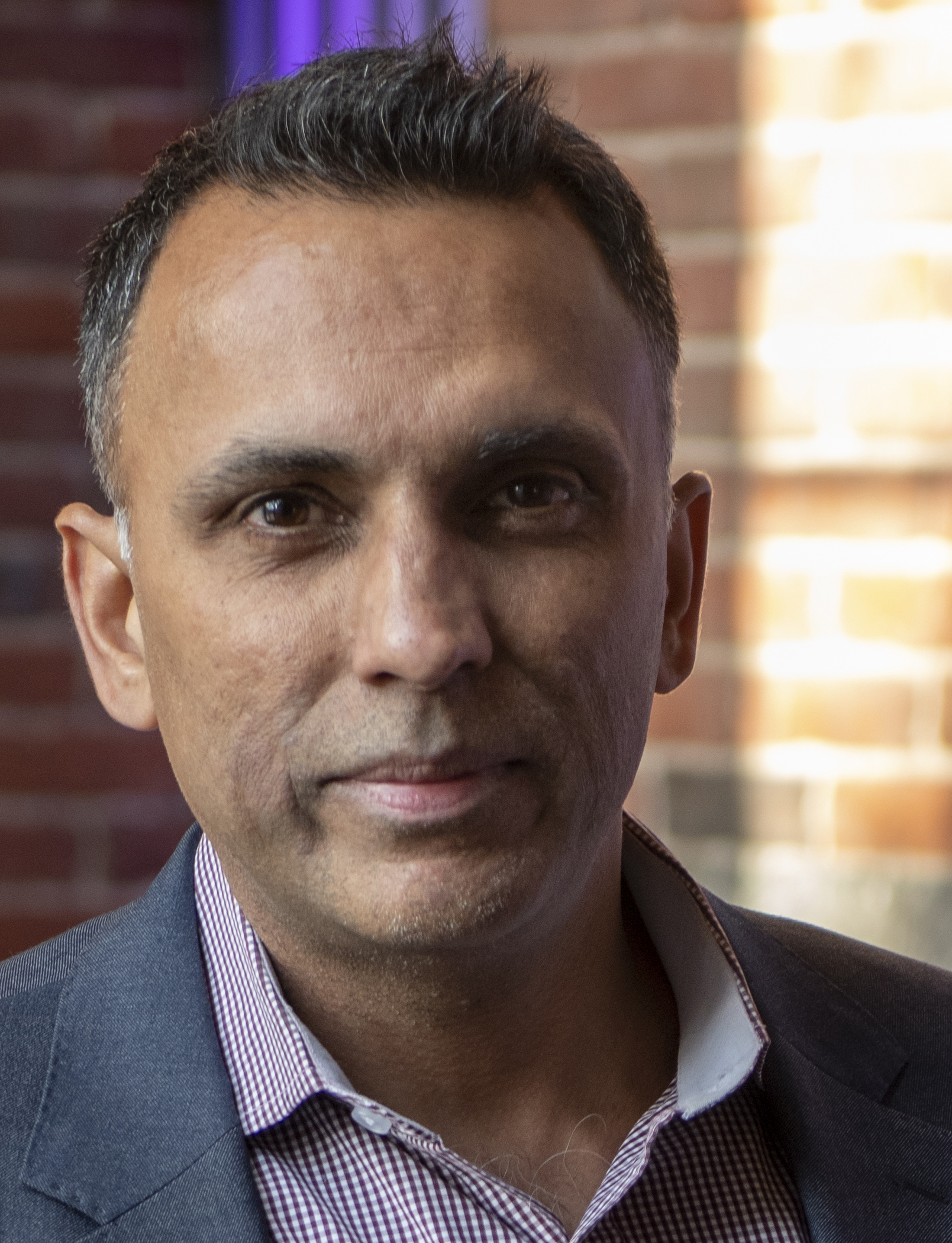
Amar Sahay, PhD
Amar Sahay is Professor of Psychiatry at Harvard Medical School, James and Audrey Foster MGH Research Scholar, and Director of the laboratory on Brain Plasticity and Function at the Center for Regenerative Medicine at Massachusetts General Hospital. He is the principal faculty of the Harvard Stem Cell Institute of Harvard University and an Associate member of the BROAD Institute of MIT and Harvard. Dr. Sahay earned his doctorate in neuroscience from the Johns Hopkins University School of Medicine in the laboratories of David Ginty and Alex Kolodkin and performed postdoctoral research in Rene Hen’s laboratory at Columbia University before launching his independent research program at MGH in 2011. Dr. Sahay’s laboratory investigates molecular, circuit, and network mechanisms of plasticity and cognition. His laboratory’s discoveries have garnered international recognition and have led to high-impact publications, citations, replication of findings, placement of trainees in academia and industry, and a robust, funding track record. The lab’s patents exemplify how we can harness basic science insights to restore cognition in neurodevelopmental disorders, aging, and Alzheimer’s Disease. Dr. Sahay’s research program is supported by the National Institutes of Health (NIMH and NIA), private foundations including the SIMONS Foundation and BBRF, and philanthropic support. Dr. Sahay is the recipient of career development awards from the Society for Neuroscience and the American College of Neuropsychopharmacology. He is a member of the American College of Neuropsychopharmacology and served on the Program Committee for the Society for Neuroscience Annual Meeting and as the SFN-appointed member of the Program Committee of the Federation of European Neuroscience Societies. Dr. Sahay is committed to teaching and co-directed the Harvard BBS course in Concepts in Development, Self-Renewal, and Repair (2014-2019). He currently teaches the neuroscience section of the Leder Human Biology and Translational Medicine Program to Harvard and MIT graduate students at Harvard Medical School. He serves on the steering committee of Harvard Brain Initiative (HBI), a cross-Harvard schools neuroscience initiative. Dr. Sahay’s mentees have been awarded NARSAD Young Investigator grants (postdoctoral fellows), K99/R00 award, NIH Diversity Supplements, HHMI Gilliam Fellowships (Harvard Neuroscience Program Graduate students), and Harvard’s Hoopes prize (Harvard undergraduate honors thesis). For more info: www.sahaylab.com
Disclosures:
Available Credit
- 1.00 AMA PRA Category 1 Credit™
This activity has been planned and implemented in accordance with the accreditation requirements and policies of the Accreditation Council for Continuing Medical Education (ACCME) through the joint providership of IHP and Massachusetts General Hospital. IHP is accredited by the ACCME to provide continuing medical education for physicians.
IHP designates this Enduring activity for a maximum of 1.00 AMA PRA Category 1 Credit™. Physicians should only claim credit commensurate with the extent of their participation in the activity.
- 1.00 Nursing Contact Hours
Massachusetts General Laws, Chapter 13, sections 13, 14, 14A, 15 and 15D and Chapter 112, sections 74 through 81C authorize the Board of Registration in Nursing to regulate nursing practice and education.
This program meets the requirements of the Massachusetts Board of Registration in Nursing (244 CMR 5.00) for 1.00 contact hours of nursing continuing education credit. Advance practice nurses, please note: Educational activities which meet the requirements of the ACCME (such as this activity) count towards 50% of the nursing requirement for ANCC accreditation.
- 1.00 Social Workers
As a Jointly Accredited Organization, the MGH Institute of Health Professions is approved to offer social work continuing education by the Association of Social Work Boards (ASWB) Approved Continuing Education (ACE) program. Organizations, not individual courses, are approved under this program. State and provincial regulatory boards have the final authority to determine whether an individual course may be accepted for continuing education credit. MGH Institute of Health Professions maintains responsibility for this course. Social workers completing this course receive 1.00 clock hours for continuing education credits.
- 1.00 Participation
This course allows other providers to claim a Participation Certificate upon successful completion of this course.
Participation Certificates will specify the title, location, type of activity, date of activity, and number of AMA PRA Category 1 Credit™ associated with the activity. Providers should check with their regulatory agencies to determine ways in which AMA PRA Category 1 Credit™ may or may not fulfill continuing education requirements. Providers should also consider saving copies of brochures, agenda, and other supporting documents.
- 1.00 Psychologists CE Credit
Continuing Education (CE) credits for psychologists are provided through the co-sponsorship of the American Psychological Association (APA) Office of Continuing Education in Psychology (CEP). The APA CEP Office maintains responsibility for the content of the programs. MGH Institute of Health Professions designates this activity for 1.00 CE credit.
Accreditation
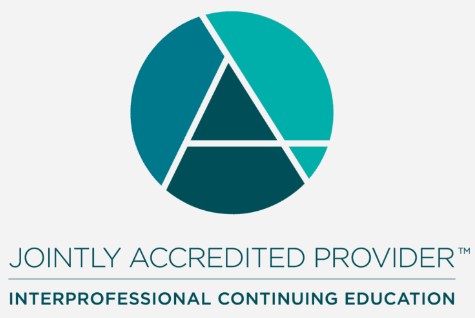 In support of improving patient care, MGH Institute of Health Professions is jointly accredited by the Accreditation Council for Continuing Medical Education (ACCME), the Accreditation Council for Pharmacy Education (ACPE), and the American Nurses Credentialing Center (ANCC) to provide continuing education for the healthcare team.
In support of improving patient care, MGH Institute of Health Professions is jointly accredited by the Accreditation Council for Continuing Medical Education (ACCME), the Accreditation Council for Pharmacy Education (ACPE), and the American Nurses Credentialing Center (ANCC) to provide continuing education for the healthcare team.
1.0 Physicians
MGH Institute of Health Professions designates this live activity for a maximum of 1.0 AMA PRA Category 1 Credits ™. Physicians should claim only credit commensurate with the extent of their participation in this activity.
1.0 Physician Associates/Assistants
AAPA Credit Designation Statement – Live
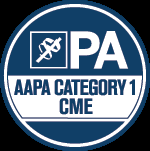 MGH Institute of Health Professions has been authorized by the American Academy of PAs (AAPA) to award AAPA Category 1 CME credit for activities planned in accordance with AAPA CME Criteria. This activity is designated for 1.0 AAPA Category 1 CME credits. PAs should only claim credit commensurate with the extent of their participation.
MGH Institute of Health Professions has been authorized by the American Academy of PAs (AAPA) to award AAPA Category 1 CME credit for activities planned in accordance with AAPA CME Criteria. This activity is designated for 1.0 AAPA Category 1 CME credits. PAs should only claim credit commensurate with the extent of their participation.
AAPA Credit Designation Statement – Enduring Materials
MGH Institute of Health Professions has been authorized by the American Academy of PAs (AAPA) to award AAPA Category 1 CME credit for activities planned in accordance with AAPA CME Criteria. This activity is designated for 1.0 AAPA Category 1 CME credits. Approval is valid until {Expiration Date). PAs should only claim credit commensurate with the extent of their participation.
1.0 Nursing
MGH Institute of Health Professions designates this activity for 1.0 contact hours for nurses. The American Academy of Nurse Practitioners Certification Board (AANPCB) accepts credit from organizations accredited by the ACCME and ANCC.
1.0 Pharmacists
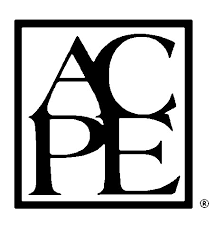 This activity provides 1.0 contact hours of continuing education credit.
This activity provides 1.0 contact hours of continuing education credit.
NOTE FOR PHARMACISTS: Upon closing of the electronic evaluation, IHP will upload the pharmacy-related continuing education information to the CPE Monitor within 60 days. Per ACPE rules, IHP does not have access nor the ability to upload credits requested after the evaluation closes. It is the responsibility of the pharmacist or pharmacy technician to provide the correct information [NABP ePID and DOB (in MMDD format)] in order to receive credit for participating in a CE activity.
1.0 Psychologists:
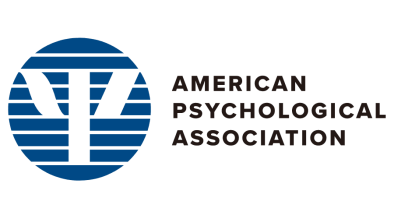 Continuing Education (CE) credits for psychologists are provided through the co-sponsorship of the American Psychological Association (APA) Office of Continuing Education in Psychology (CEP). The APA CEP Office maintains responsibility for the content of the programs. MGH Institute of Health Professions designates this activity for 1.0 CE credit.
Continuing Education (CE) credits for psychologists are provided through the co-sponsorship of the American Psychological Association (APA) Office of Continuing Education in Psychology (CEP). The APA CEP Office maintains responsibility for the content of the programs. MGH Institute of Health Professions designates this activity for 1.0 CE credit.
1.0 Social Workers
 As a Jointly Accredited Organization, MGH Institute of Health Professions is approved to offer social work continuing education by the Association of Social Work Boards (ASWB) Approved Continuing Education (ACE) program. Organizations, not individual courses, are approved under this program. State and provincial regulatory boards have the final authority to determine whether an individual course may be accepted for continuing education credit. MGH Institute of Health Professions maintains responsibility for this course. Social workers completing this course receive 1.0 clock hours for continuing education credits.
As a Jointly Accredited Organization, MGH Institute of Health Professions is approved to offer social work continuing education by the Association of Social Work Boards (ASWB) Approved Continuing Education (ACE) program. Organizations, not individual courses, are approved under this program. State and provincial regulatory boards have the final authority to determine whether an individual course may be accepted for continuing education credit. MGH Institute of Health Professions maintains responsibility for this course. Social workers completing this course receive 1.0 clock hours for continuing education credits.
1.0 IPCE Credit
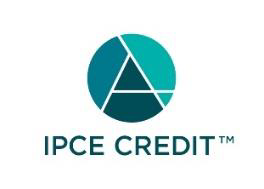 This activity was planned by and for the healthcare team, and learners will receive 1.0 Interprofessional Continuing Education (IPCE) credit for learning and change.
This activity was planned by and for the healthcare team, and learners will receive 1.0 Interprofessional Continuing Education (IPCE) credit for learning and change.

 Facebook
Facebook X
X LinkedIn
LinkedIn Forward
Forward